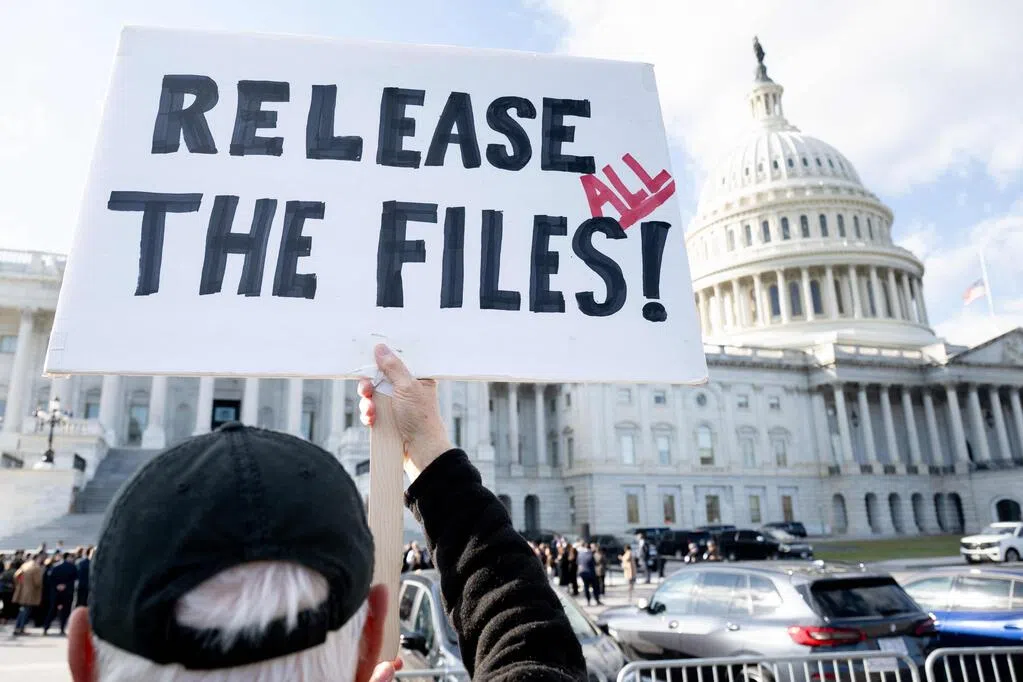(Washington, D.C.) The Republican-controlled U.S. Congress passed a bill on Tuesday almost unanimously, requiring the Justice Department to release the files of the late sex offender Jeffrey Epstein. The bill is expected to be sent to President Trump for his signature as early as Wednesday. Trump had previously strongly blocked the bill's passage, but changed his stance under immense political pressure, shattering the myth of his absolute power within the Republican Party.
On Tuesday (November 18), the U.S. House of Representatives voted 427-1, requiring the Justice Department to release non-classified records, documents, communications, and investigative materials related to the investigation and prosecution of Epstein. However, the Justice Department can retain certain information, such as victims' personal information and materials that may affect the ongoing investigation.
The Senate subsequently passed the bill unanimously. Sources familiar with the matter revealed that the speed of the bill's passage surprised the White House.
The bill still needs Trump's signature to take effect. White House officials said Trump will sign the bill.
Epstein was a wealthy New York businessman with close ties to many political and business figures. He was arrested on suspicion of trafficking and sexually assaulting minors and died in prison in August 2019. Trump promised during his campaign last year that he would release the Epstein files if he returned to the White House, but he later refused to do so.
Further Reading


Recently, Democrats and Republicans have been taking turns releasing documents related to Epstein, accusing each other of having high-ranking figures in their respective camps linked to him, including Trump and former Democratic President Clinton.
Disagreements have arisen within the Republican Party regarding the release of the Epstein case files. Representative Green, a former staunch Trump ally, claimed she was pressured to release the files, and Trump publicly accused her of being a "traitor."
Two days before the vote, Trump suddenly changed his stance, urging Republican members to vote in favor of releasing the Epstein documents, stating, "We have nothing to hide." Analysts believe this may be due to several Republican members disregarding instructions from their party leaders and deciding to vote in favor.
Trump had close ties with Epstein in the 1990s and 2000s. Although Trump claims their relationship later broke down, this past friendship has become one of his few vulnerabilities.
Poll: Trump's Approval Rating Drops to 38% A Reuters/Ipsos poll released Monday (17th) showed that Donald Trump's approval rating has fallen to 38%, a new low since his return to the White House, affected by the Epstein case and soaring cost of living. Trump's approval rating was 47% when he took office in January.
According to the poll, only 20% of Americans approve of Trump's handling of the Epstein case. About 70% of respondents believe the government concealed information about Epstein's client list.
Although voters still believe Republican economic policies are better, Trump's declining approval rating could be detrimental to the Republican Party's chances in next year's midterm elections. Independent strategist Onstad told Reuters, "What we are seeing now is probably the biggest test of the Republican Party's control since Trump took office."
Trump again denied any involvement in the Epstein case on Tuesday. He said, "I have absolutely nothing to do with Epstein. I kicked him out of my club years ago because I thought he was a psychopath."
That same day, Trump, angered by a question from an ABC reporter about the Epstein case, denounced ABC as "fake news" and the worst media organization, and called on the Federal Communications Commission (FCC) to revoke ABC's license.
Last Friday (the 14th), Trump also lost his temper when asked about the Epstein case by a Bloomberg reporter, pointing at her and calling her "pig" and telling her to "quiet."
A CNN analysis points out that with Trump's approval ratings declining and the White House embroiled in numerous thorny issues, Trump and Attorney General Bundy face difficult political choices. Unless the Justice Department immediately releases the Epstein case documents, suspicions that he is concealing information will only deepen.
Democratic Vermont Senator Welch said on Tuesday, "The next question is, will Trump take other measures to try to prevent the public from accessing information that the law requires to be made public?" "
Besides Trump's next move, the extent of political damage this incident will inflict on him remains to be seen. A CNN article stated: 'Does this herald a new phase in his presidency, with Republicans no longer readily heeding his every word? Or is the Epstein incident...just an isolated case?'"



